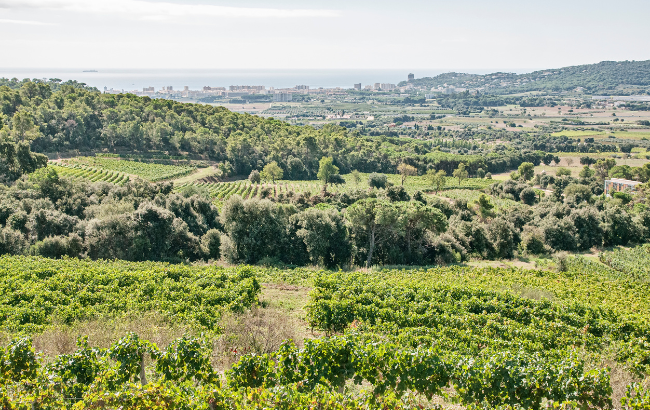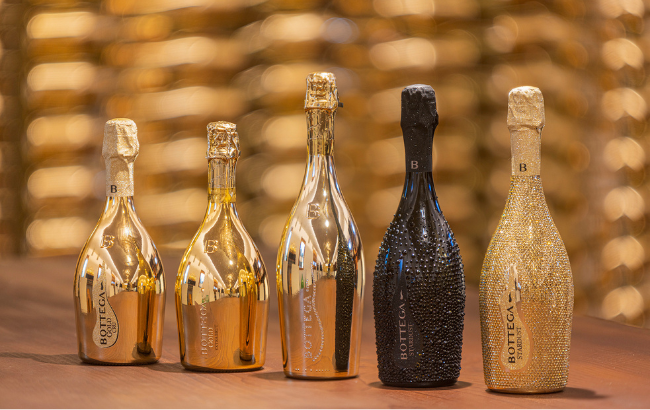Waldin: “I still get ridiculed for being biodynamic”
By Lucy ShawBiodynamic winemaker and writer Monty Waldin has admitted he still gets “ridiculed” for practising biodynamic farming.
Addressing key members of the UK wine trade at an organic and biodynamic debate at the WSET head quarters in London last week, Waldin urged the trade to “sit up and take notice” of the biodynamic movement.
“Over 5% of the world’s vineyards are now organic and biodynamic, so the message seems to be getting across,” Waldin said.
In an impassioned speech, Waldin stressed the need for more farmers in the UK, saying: “We need to get more people into agriculture, to get the fat McDonald’s eaters farming.”
Waldin spoke disparagingly about “Parker 100-point” wines, calling them “not real wines”, and admitted that not all organic wines on the market are high quality: “There’s a lot of boring, crap, industrialised organic wines on the market, and if the industry’s going to implode, it’s because of that.”
He confessed he didn’t know how biodynamics works, but that it does seem to work. “It’s not a perfect system, but we’re moving in the right direction. The “voodoo” perception is lazy journalism. It’s easy to knock something weird.”
Meanwhile, Australian viticulturalist Dr Richard Smart warned that the strong support for organics and biodynamics in the UK trade is disadvantaging conventional winemakers who are “equally earnest in their plight.”
Partner Content
“One conventional winemaker, who asked not to be named, told me he was too frightened to stick his head above the parapet and admit that he’s not organic and biodynamic for fear of it affecting sales of his wines,” Smart said, adding, “winemakers are frightened not to be seen to be green these days.”
Smart, who referred to himself as an “unashamed environmentalist”, argued that the UK is promoting organic and biodynamic wines in the wrong way.
“Making out that non-organic and biodynamic wines are harmful to your health is a dangerous approach, as 95% of wine is non-organic and biodynamic,” he said.
The global consultant on viticultural methods told the audience that in the next few years, “sustainable” will become the new buzzword, and organic and biodynamic will be “past their sell-by date”.
He also attacked wooden barrels, corks and glass bottles, as “the three dinosaurs in the wine world” that have no place in today’s industry.





Biodynamics is on its way out. A flash in the pan created by people who do not understand Biodynamics, or are using it as a marketing advantage- especially in the way biodynamic promoters bad mouth non biodynamic farmers. BD relys on Steiner being a quasi god ( which a cursory exploration will reveal he created the whole diatribe out of thin air) and the Agricultural Lectures are treated like a Bible that Steiner wrote-wherein ridiculous statements are accepted as plausible. Read it critically and you will find it wanting, vague and laughable. And din’t forget to toss Maria Thun’s Biodynamic Calendar out the door -(Root Flower Fruit ) the only time Maria’s experiments worked is when she did them. No to mention that Maria contradicted Steiner when she claims the moon’s presence enhances effects. Steiner thought the direct opposite. Steiner and Maria are for uncritical minds seeking redemption and purity seeing in BD attributes of a new religion. Unfortunately Steiner used seances to seek truth about farming. Too bad he didn’t try to find truth in farming by actually conducting repeatable and verifyable experiments. When farming, don’t let BD advocates tell you “it works ” when they have no clue whether it “works”. They are the Bernie Madoffs of farming.
Lets take in consideration the quality of the wine.
It has be acknowledged that the quality of the wine issued from BD is of higher than any other winemaking method.
But again, one needs to understand the effect of Terroir that BD is enhancing. So far the most successful BD wines are located in the Old World. New World is again challenging at a fast pace (especially cooler climate areas)
Don’t we forget that BD is the original method of winemaking (way before pesticides & chemicals existed)
Thumbs up for winemakers following this painstaking and so rewarding method.
Enhancing a healthy soil is not the sole perogative of any faction and many conventional growers are equally passionate about their soil. Using copper and sulphur is not ‘the achilles heel’ of bio-dynamics and organics, it’s the game breaker that puts the rest on shaky ground. Many conventional growers wont use copper because of the build up of residues in the soil. By all means, follow whatever system one wants that improves outcomes for the environment and the customer, but the ‘it works, but I don’t know why’ argument is extremely unconvincing. Growers should have a specific reason for each individual act and be able to justify them too.
With good reason!
t has be acknowledged that the quality of the wine issued from BD is of higher than any other winemaking method.
Sorry Gerard, I dont have to acknowledge that, prove it. By the way, people were growing grapes a long time before Steiner had his prophetic vision. Its a cross between the mormons, scientology and homeopathy, quack quack quack>
“I dont have to acknowledge that, prove it”
All in the soil quality, years after years a BD soil will get healthier bringing harmony in the vineyard. Though it will take more time to achieve than conventional winemaking the result is “Proven by Experts” higher and furthermore will not leave “concrete soil” after several years.
Check out the many comparative wine tasting results available on the net. Or better be your own judge and blind taste, taste & taste…
The five percent conversion to healthier and sustainable
practices is an important benchmark.
It’s time for consumers to support these pioneers of these
very special wines.
Dr Richard Smart is a viticultural consultant. He is not qualified to comment on the relevance of corks, barrels and glass bottles. Furthermore, most of his view on “quality” is based around sugars and achieving a high crop load. Where is the mention of flavour and complexity?
Let us see: wood barrels, corks from trees and glass. All renewable or recyclable resources. Somehow they are not green? The trees absorb CO2, become wood for barrels and then are replanted. The cork trees grow for a very long time and put out a crop from time to time. Recycling glass bottles is in full righteous frenzy. But it would seem not ‘green correct.” That’s the sort of narrow attitude that will make sustainable efforts a joke sometime in the future to most of the public. In fact it is happening now.
Dear Mr. Waldin, you don’t know how it works? It works the same as tarot cards, fortune telling, crystals, homeotherapy and auras. Lots of websites for crystals say the same thing, word for word you are saying: we don’t know why, but it works. BioD doesn’t work, but composting soils works fine and I compost my soils I know what it is based on: Steiner held seances, and in them dreamed up all of the biodynamic preparations. Theses preparations have no historical antecedents. They were created out of whole cloth by Steiner. Steiner was an unusual man, the very week he gave the agricultural lectures ( the entire basis of Biodynamics) Steiner was holding seances with the a dead man – the deceased german General Molke, whom Steiner held in very high regard. I have very poor regard for Steiner’s General Molke, as Molke was head of the German army, and one of the principle strategists responsible for Germany’s invasion of France and the ensuing deaths of tens of millions. Should you believe Steiner on agriculture, you may love his conversations with dead people.